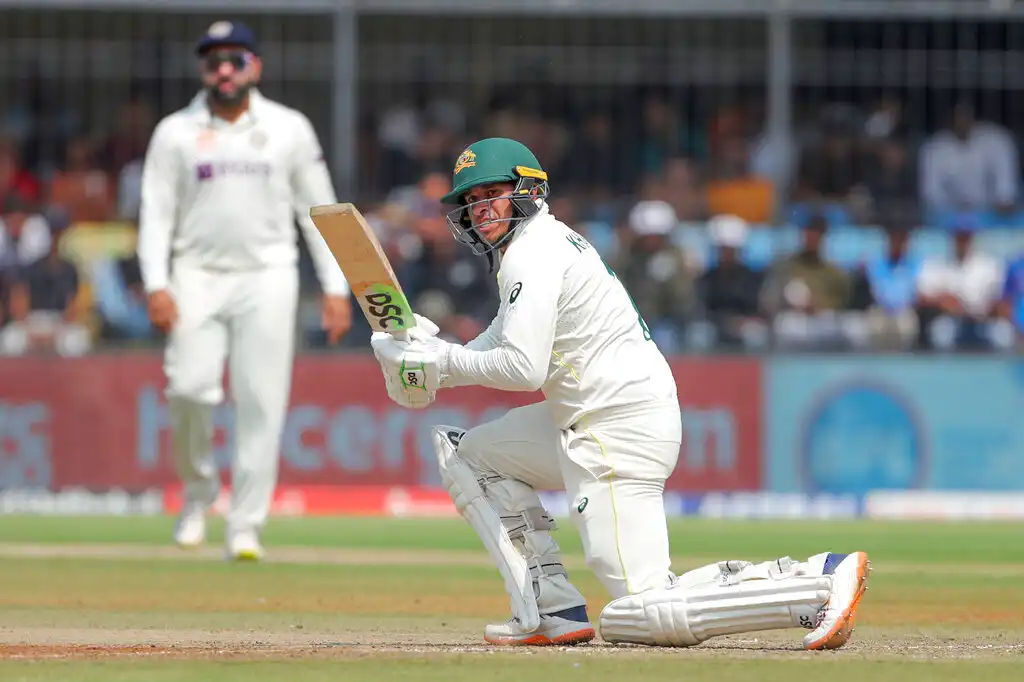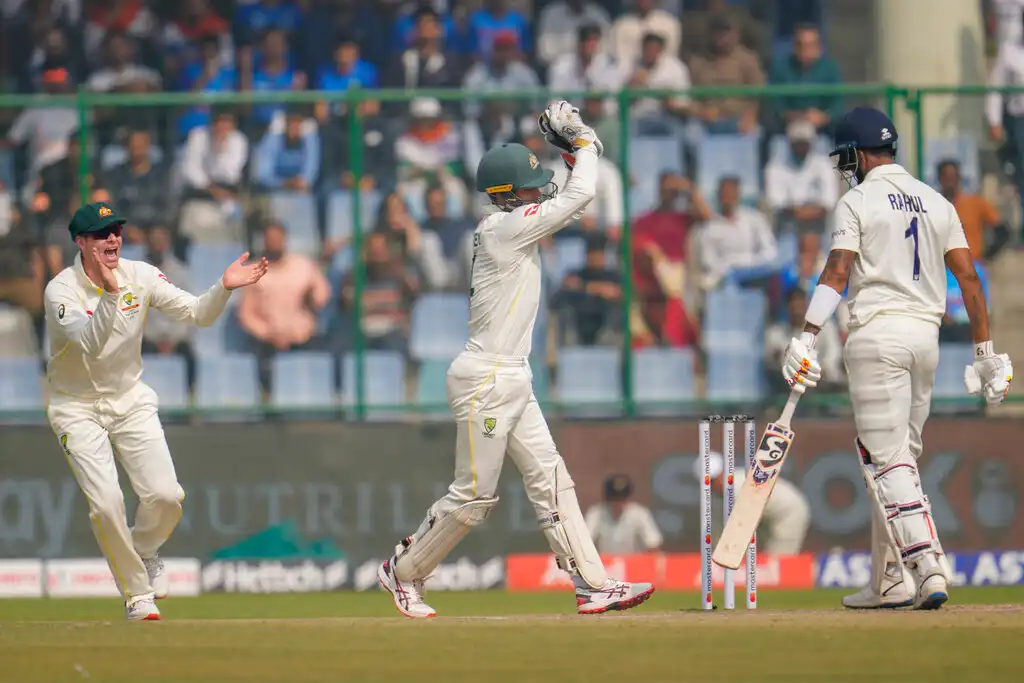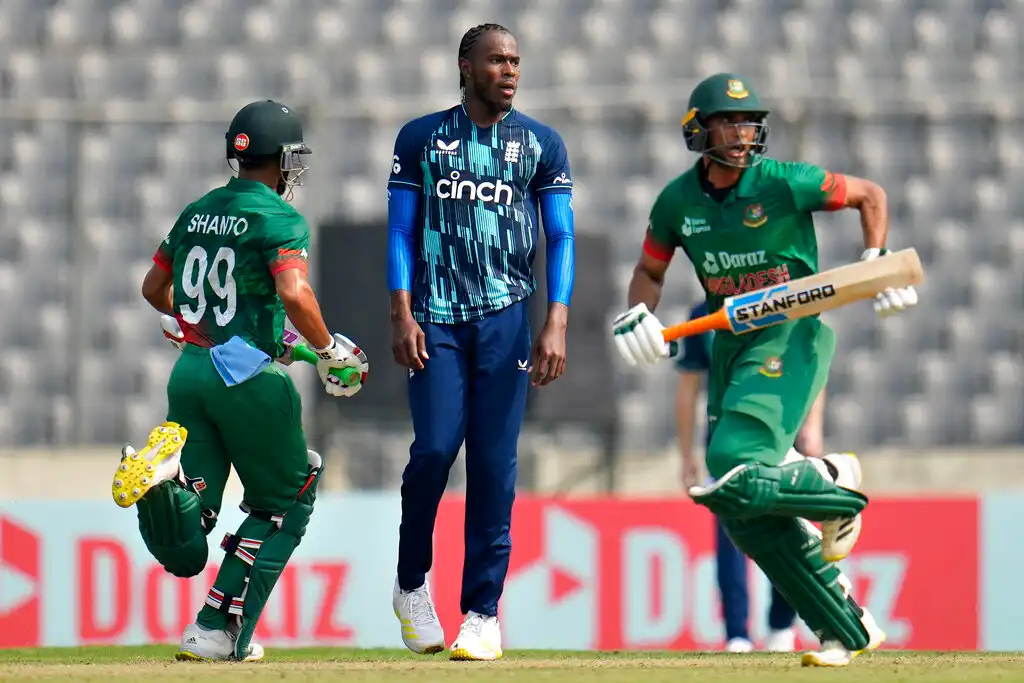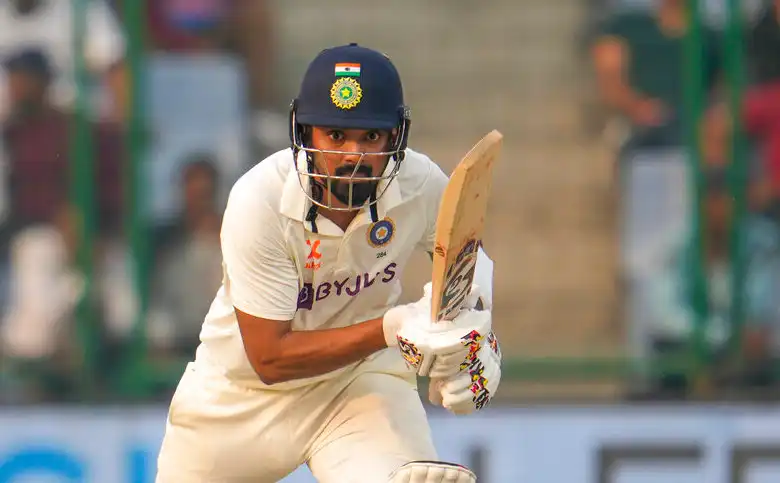 Inventors of Bazball - McCullum and Stokes (Twitter/ECB)
Inventors of Bazball - McCullum and Stokes (Twitter/ECB)
Let us rewind our clocks 8 years back. The year is 2015, and England have been knocked out of the ICC Cricket World Cup by the minnows Bangladesh. Of course, we all know what happened next. The inventors of the sport, under Eoin Morgan's captaincy, revamped themselves and their approach to play white-ball formats, which resulted in them holding two ICC trophies.
However, using a loudspeaker, an announcement was made from a tall building located somewhere in Old London that Test Cricket will be played how Test Cricket is supposed to be played. Period.
Time went on, and the loudspeaker's sound got faded. The English side, despite playing the most number of Test matches, got worse from poor. And a regime change saw the meaning of Test Cricket change in the English dictionary.
Now, playing Test Cricket in a non-Test Cricketesque manner became alright. A new adaptation was brought to the English Test-playing style - which was later coined Bazball by their media.
What is bazball in Test cricket?
The Bazball, headed by skipper Ben Stokes and coach Brendon McCullum, has been astonishing as the team has been battering the opposition home and away.
From a layman's language, the approach is going for runs at unreal rates, which Test cricket has never seen. However, the Bazball is much more than that. Under that, bowlers have got teeth to bite the opposition - which has been the greatest byproduct of Bazball.
 The duo of Anderson and Broad have seen another sunrise (Twitter/ECB)
The duo of Anderson and Broad have seen another sunrise (Twitter/ECB)
Bowlers have got the backing that they will be playing as many games as their bodies permit. If in rhythm, a bowler has been asked to bowl a long spell like a workhorse. Now, the English aren't afraid of bold declarations. Not just that, if one of their plans isn't working, they aren't terrified of switching to Plan B or Plan C in the middle of a spell.
Bazball is fine when bowling is concerned. Every side that has seen success in Test cricket has had fuel to go one extra mile as the English have. But the heart-rending part is the batting.
Scoring runs at berserk rates is fun to watch and easy to pull the crowd. So if Bazball is the new-cool thing, then why is the writer against it? When change is the only constant, why is a change in the approach to playing Test cricket wrong?
Alright, I will explain myself.
Bazball is not the way how Test cricket was meant to play. Test cricket is regarded as a great evaluator of a batter's technique, temperament, and fitness since its inception. However, Bazball is everything against that age-old style of Test cricket.
 Root and Brook during the Wellington Test (Twitter/ECB)
Root and Brook during the Wellington Test (Twitter/ECB)
Under Bazball, Test matches are finishing well within five days. That's fun for the audience who live by the formula of fast-running T20 cricket. However, the purest who loves watching a battle between bat and ball would eventually die. This new way of playing Tests will force a bowler to think more about mixing his lines and lengths than sticking to a particular plan.
If my limited cricket learnings aren't wrong, in a poetic sense, Test cricket is referred to as the way to live. And as the saying goes, when the going gets tough, return to your basics and start trusting your defence.
But the new English think otherwise. So the question remains stern, would it work in the long haul?
Is Bazball the long-term solution?
The recently concluded match between the Three Lions and the Blackaps was well and truly a Test match to remember. The reigning WTC winners became the only fourth team to win a Test after being enforced to follow on.
Apart from telling that the Kiwis are determined and have the zeal imbibed, the game taught a couple more things.
Despite hammering the Blackcaps in the first match and for the majority of the latter one, the result went against burly England in the second game.
It showed that the Bazball is vulnerable.
.jpg) England lost by 1 run at Wellington (Twitter/ICC)
England lost by 1 run at Wellington (Twitter/ICC)
Not just that, they have shown weaknesses that quality opposition can use to their advantage. Teams would already have started to jot down their plans after smelling the leather.
They, too, can be put under pressure, and in pressure, they get into a shell where they fail to decide whether to go aggressive or play cautiously.
Real questions will be asked in the coming times.
The Bazball may have portrayed themselves as the hulk, but the challenge will come when the new cycle of the World Test Championship begins.
They will have an obstacle when facing India or Australia because being gung-ho could backfire against a lethal bowling outfit backed with an equally brilliant batting lineup.
Another question is whether they play similarly when trailing behind in a series in the next cycle.
All these questions are worth asking as life - just like cricket - is not all sunshine and roses.







